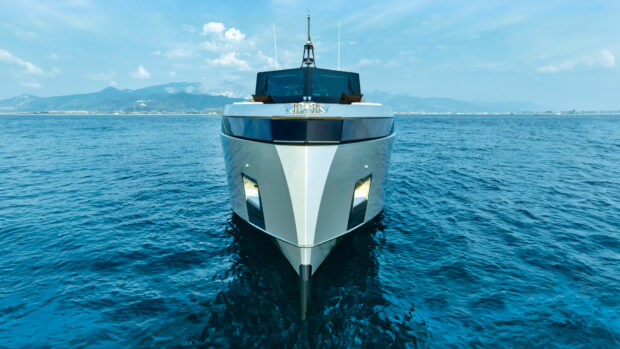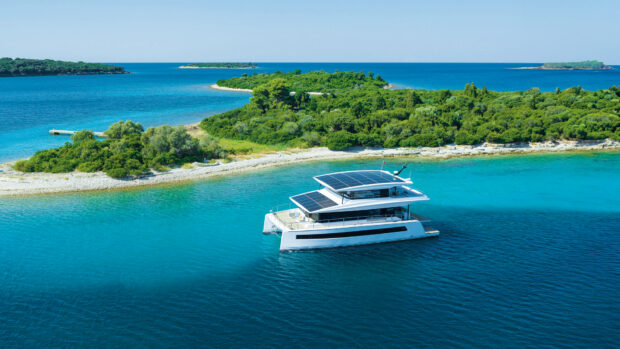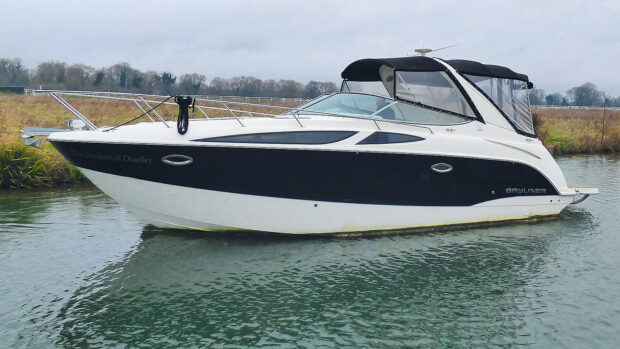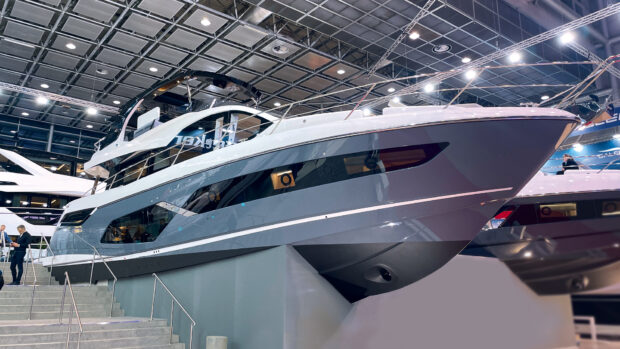High on Sabreline's list of plus points is incredibly strong construction. Having examined the building drawings in some detail, we can vouch for the fact that not only are the laminates substantial, they are excellently 'engineered'.
High on Sabreline’s list of plus points is incredibly strong construction. Having examined the building drawings in some detail, we can vouch for the fact that not only are the laminates substantial, they are excellently ‘engineered’. Sabre have not opted for a clumsy ‘brick outhouse’ approach – more a ‘brick outhouse with finesse’ assembly.
There is a strong practical slant to the engineering installation. We are more likely to inspect service items regularly if they are easy to get to, and the Sabreline scores highly in this area.
Most of the shortcomings of the Sabreline 36, such as the missing forecabin lining, lack of a shower curtain, poor saloon steps, small dinette table and the dearth of cockpit drinks holders, could be easily solved. My main criticism concerning the ergonomics of the helm position could also be easily corrected because Sabre mould the dash separately from the main deck moulding. Most boats suffer the same basic problem, and MBY will continue to complain until they improve.
Steering the Sabreline was really satisfying: although it responded quickly to the wheel, it also tracked well in a straight line. Compared to its faster flybridge counterpart, there was more control when manoeuvring the boat at low Speed, a function of the reduced windage and the extra grip on the water afforded by the small keel.
There is no doubt that the ‘flavour’ of the Sabreline is fundamentally different to that of most European sportscruisers. The deck spaces can be used for a greater variety of pursuits, and the ‘wide open spaces’ feel down below has been replaced with a cosy atmosphere, created by using lots of cherry woodwork.
Sabre contend that, because the 36 feels different, buyers will include a high percentage of people moving across from sailboats. Based on our observations, we think that the Express will have a wider appeal.
DIMENSIONS
Length overall (LOA) 40ft 1in 12.22m
Hull length 36ft 0in 10.97m
Beam 12ft 6in 3.81m
Draught 3ft 4in 1.02m
Air draught (to top of windshield) 8ft 5in 2.57m
Displacement 8.3 tons
Fuel capacity 250 imp gal 1,379 litres
Water capacity 83 imp gal 379 litres
Engines Twin Caterpillar 3116
300hp @ 2,800rpm
6-cylinder 6.6lt turbo diesels
Four-bladed props, 24in diameter x 26in pitch (610mm x 660mm)
RPM Speed Trim GPH MPG Range
600 5.0 0.0° n/a n/a n/a
1,000 8.3 0.5° 2.5 3.28 656
1,500 11.0 3.0° 5.0 2.20 440
2,000 16.1 4.5° 10.1 1.59 318
2,400 20.3 5.0° 16.5 1.23 247
2,800 25.0 4.5° 25.9 0.96 193
Range figures allow for 20% reserve 50% fuel, 50% water, 3 crew
Sea state: 8in (200mm) chop
Wind strength: Force 2
Performance
Maximum Speed 25 knots
Maximum Range 193 miles at 2,800rpm
Cruising Speed 20 knots
Cruising Range 255 miles at 2,400rpm
Price from £252,000 ex VAT
Price as tested £262,000 ex VAT
Builder: Sabre Yachts
Hawthorne Road
Box 134
South Casco
Maine 04077, USA.
Tel: +1 (0)207 655 3831.
Fax: +1 (0)207 655 5050.
E-mail: sabre@sabreyachts.com
WWW: sabre@sabreyachts.com









